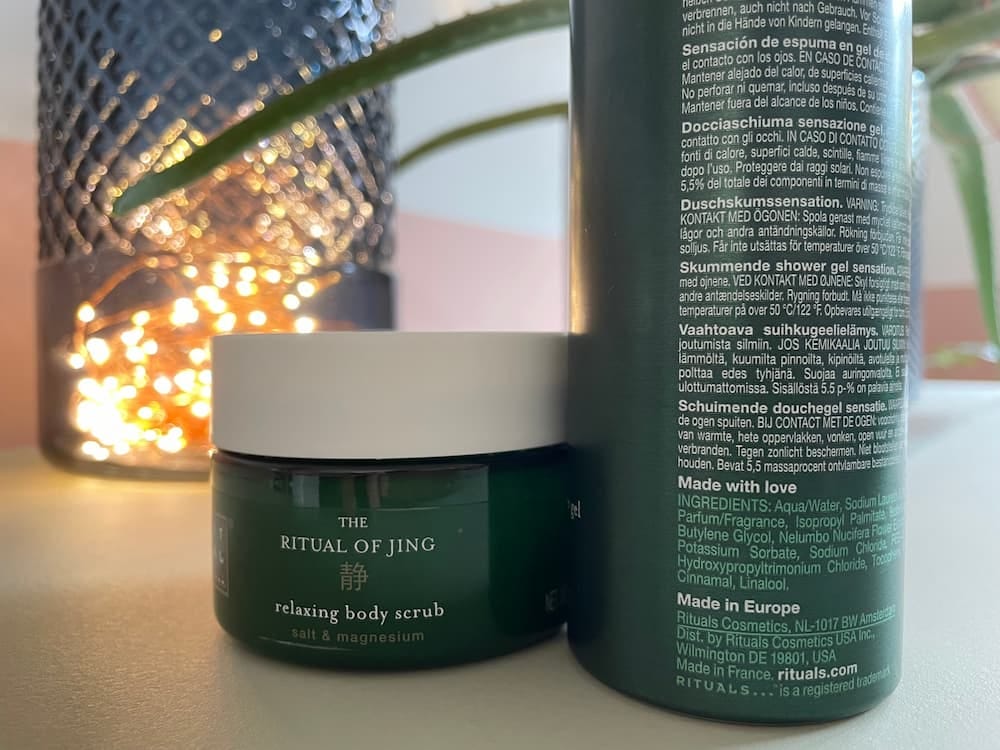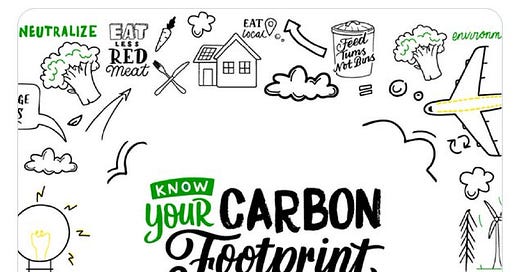

Discover more from Oxymoron
Silvia entered the restaurant limping. She had come with her daughter for a special meal but after years of chronic pain in her hip, even the short walk from the car to the restaurant was unbearable. The restaurant owner, Danny, immediately realised that she was struggling and helped her to the table. He asked if there was anything he could do to help, but she explained that there was nothing that could be done as this was the pain she has been living with for a long time.
Feeling that he couldn't watch his customer suffer without doing anything to help, he had a strange idea. He went to the kitchen and told the chef, John, about Silvia's situation, then asked him if he could bless the food before sending it out to Silvia. John thought this was ridiculous and initially refused. He was a rational man who wasn't going to embarrass himself by participating in any mumbo jumbo.
But Danny persisted. “Please would you just do it this once, for me?” he pleaded. “It doesn't cost anything and it will only take a moment. At least we'll have tried to do something to help, however far fetched it seems”. John reluctantly agreed that he would do it just this once.
Before he rang the service bell, John took a moment to tell the food how grateful he was for the healing nutrition that it was going to provide Silvia and he asked it her to carry his love to her. He then rang the service bell and shook off the embarrassment before getting back to cooking meals for the other guests.
Part way through her meal, Silvia began to sob uncontrollably. Danny rushed over to see if she was okay, naturally concerned that her pain was getting worse. “What did you do to this food?” she asked. Feeling the anxiety that his customer was unhappy wash over him, he enquired “I'm really sorry, is the food not good?” Silvia gently smiled and said “It's more than good. It's given me relief that I haven't felt in years. Can you ask the chef to come out so that I can thank him?”
At this point, Danny was speechless. He had never done anything like this before and didn't expect it to actually have any effect. Had the love given to the food actually made a difference? In something of a confused daze, he walked back to the kitchen and told John that Silvia had asked to speak to him. As he approached the table, she looked at him and asked “What did you do to my food that made me feel so much better?”
John was even more spooked than Danny. He didn’t honestly believe that he had done anything significant, but somehow she seemed to have genuinely experienced something meaningful despite not having been told what they had done. He sheepishly explained how he had sent her love through the food on Danny's request and hoped that it might provide her some healing and relief.
I realise that this all sounds a bit far fetched, but it had a profound effect on those involved that night. I've changed the names for privacy reasons, but this is a real story, shared by the restaurant owner one quiet Autumn evening this year during which it was clear that he was deeply moved by the experience. It got me wondering, could this really have happened? And more broadly, what is the role of love in creating businesses that have a positive impact in the world?
To the first question, I of course have to concede that it seems hard to believe that John sending love through the food could actually have impacted Silvia, but what do I know? There's a growing body of evidence suggesting that non-physical phenomena do exist and represent new frontiers in scientific exploration. And let’s not forget the words of Nikola Tesla when he said “The day science begins to study non-physical phenomena, it will make more progress in one decade than in all the previous centuries of its existence.” So I’ll keep an open mind.
On a more practical level, I can't help but think that Danny was right when he told John that it doesn't cost anything for him to bless the food. Are we so closed minded that we won't even open ourselves to experimenting with such things, even when there is no cost to doing so? Even if there isn’t any “magical” effect, surely taking a moment to think lovingly about the people we serve through our work will help us deepen our empathy toward them. That can only be a good thing.
All of this got me thinking about the work that we do at Wholegrain Digital and in particular how in the early days we used to put a small signature in the footer of our clients’ websites that said “Made with ♥ by Wholegrain Digital”. What did we mean when we wrote that?
This question has been sitting in my head in recent months but I didn’t know how to discuss it with the team. Let’s be honest, us Brits are not exactly well known for being good at talking about the touchy feely stuff, let alone things that might at first sound unscientific. I asked a few friends for advice on how I could approach this topic in a team environment and while they understood what I was saying, they didn’t hesitate to confirm my fears that discussing such things at work would make some people uncomfortable and some others to think that I had gone mad!
So I sat on it for a couple of months until this week, when in a moment of end of year enthusiasm, I plucked up the courage to tell this story on our weekly team call. I talked about the fact that the websites we designed used to say “Made with love” in the footer and I asked the team to share their thoughts on what this could mean to them in the context of our work.
Predictably, there was a level of discomfort and shyness among the tiled faces on the video call, but there were a few acknowledging nods and a couple of brave souls who spoke up and shared some personal thoughts, including one refreshingly honest voice asking whether we can truly tell ourselves that every project we ship is made with love. The conversation then pivoted into a discussion about what we could or should put in the footer of client websites, which itself was a very thoughtful discussion but was also a convenient escape route to avoid the obvious discomfort of actually talking about what it means to put love into our work.
As we drew the team call to a close, Vineeta reminded me of a talk that I gave at WordCamp London in 2016 titled ‘How to attract big name clients with LOVE’. At the time, Wholegrain was an emerging mystery in the London agency world, winning projects with the likes of Ecover, UNICEF, M&S and Rightmove without doing any of the things that most agencies do, such as employing sales executives, boozing and schmoozing, entering industry awards or running online advertising campaigns. Somehow, these clients were finding us. People wanted to know the key to this unexplained success, so I got up on stage and told the truth, which is that “love is the answer”.
I talked about how the business was formed from the spirit of Vineeta and I deeply caring about the world we live in and wanting to make a positive contribution. I talked about how we've always truly cared about running the business in the most responsible way that we know how. I talked about how we truly cared about helping our clients, going above and beyond to support them and even talking them out of spending money when we didn't think it was in their best interest. I talked about how we wear our hearts on our sleeves and say what we really believe instead of churning out superficial marketing spiel. And I talked about how we truly care about our team and hire people who also care about our clients and the well being of society. The bottom line was that we truly cared and that clients could tell.
In a market full of phoney marketeers, it was our genuine care and integrity that was winning us clients and building us a strong reputation. While Wholegrain has changed a lot in its shape and form in the eight years since then, this fundamental truth has remained at the foundation of the company.
The problem is that when something genuinely good seems to be working, those phoney marketing people catch on and start to mimic it. In the last few years, I've noticed a growing number of brands using messaging that suggests that they put love into their products and services, and truly care about their customers and their impact on society when it's probably not the case. It’s hard not to see greenwash all around us these days, but it’s more than that, it’s lovewash.
For example, I noticed that Rituals have a message on their packaging similar to the one that we used to put on websites, saying ‘Made with love’. This message appears directly above the ingredients list including items such as PEG-120 methyl glucose dioleate and isobutane that don't exactly sound like they were put their with love. I haven't personally been to the Rituals factory and I have to acknowledge that they are a Certified B Corp, so I’m not saying that they aren’t a good company, but my spidey senses tell me that the statement ‘Made with love’ is more likely the idea of the marketing team than a true reflection of what is happening on the production line.
On the other hand, when I visit my favourite eateries locally, such as Crow Spotter Cafe and Dane & Port, I can feel the love. These are businesses that are independently run by people who deeply care about the work they're doing, the customers they're serving and the impact they're having in the world. They're the sorts of places where people actually remember you when you go in, are pleased to see you and want to genuinely take care of you. They don't need to write it on a mug or plaster it on a poster, because you can feel it in everything they do. It’s a refreshing contrast to the cold, homogenous monotony of chain restaurants with their faux-friendly branding. There are very few businesses remaining these days that give this feeling of truly caring and putting love into what they do. When you do come across it, you immediately know that you’ve found something special.

I know that love (even the platonic kind) is something that most of us aren’t comfortable talking about, especially in the context of business, but I can’t help but think that it’s somehow central to creating businesses that contribute to a better world. Sure, caring about your customers isn’t going to solve climate change, but caring is surely the first step to creating anything truly good.
Looking back over the topics I’ve covered in this newsletter this year, it’s clear in hindsight that love is a hidden thread woven through much of it, whether it’s care for non-human beings, peace, diversity and inclusion, activism or dare I say it, spirituality. Sustainable business isn’t something that we can achieve purely with our heads and our carbon accounting software, and we need to start listening to our hearts.
I hope this final post of 2023 has given you a warm hug inside and got you thinking about what it would mean to run your business or do your job with genuine love and care. It's a nice thought to ponder over the winter solstice and I hope it can inspire us to come back in the new year with lots of positive energy.
Huge thanks to the support and encouragement I’ve received from so many of you for this newsletter in the past year. I wish you all a very happy Christmas and I'll see you next year.

















Love and hugs to you Tom.
My friend Helena Clayton is an organisational consultant who has been researching and advocating for love in leadership and organisations for years now. She has a podcast too and I’m sure she would love to speak to you.
https://helenaclayton.co.uk